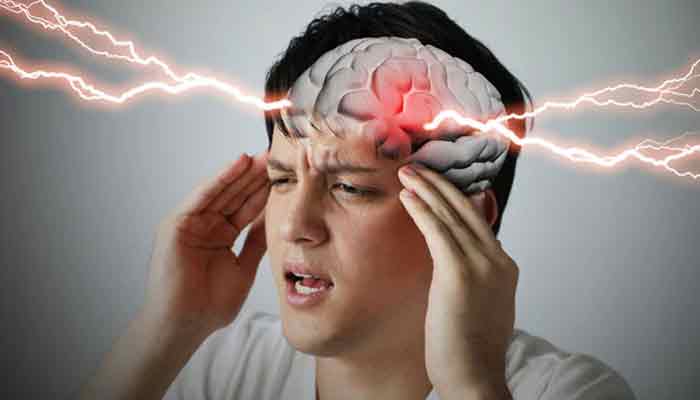Sensory Processing: How Our Brain Interprets the World
When we use our senses, these organs take in information from the world around us. For example, when we look at something, our eyes send signals to our brain about what we see. In the same way, when we smell a flower or hear a bird singing, our nose and ears send messages to our brain.
But how does our brain understand all this information? It is very smart. Every time we experience something, like tasting our favorite food or hearing a friend’s voice, our neurons start working. They connect with each other, like building little bridges.
These connections help our brain save and remember information. So, the next time we taste that yummy food or hear our friend’s voice, our brain quickly remembers what it learned before. This helps us keep a healthy brain all day focus.
The Human Brain and Technology: An Integrated Future
In short, our brain is like a super-fast computer. It takes information from our senses and stores it by connecting neurons. It is amazing how everything works together to help us understand the world and keep a healthy brain all day focus!
Today, technology is changing our lives very quickly. Things like smartphones, social media, artificial intelligence, and renewable energy are now part of our daily life. These new technologies change how we talk to each other, work, and have fun every day.
Unveiling Human Brain’s Digital Adaptability
Interestingly, our brains are amazing organs that help us understand and use information. But they were not made to handle all the complicated things in today’s digital world. Still, people are very good at changing and learning. Over time, we have learned how to live and do well in this world full of technology.
The reason we can do this is because our brains can change and grow. Our brain is different from other parts of our body because it can change its connections between neurons. This is called neuroplasticity. It helps us learn new things, solve problems, and improve our thinking skills. This ability helps us keep a healthy brain all day focus even in a fast-changing world.
Maximizing Brain Health in Today’s Fast-Paced World
Even though our brain can change and adapt, it is very important to take care of it, especially with all the fast changes in technology and the busy life we live today. To keep a healthy brain all day focus, we need to live in ways that help our brain work well. This means doing regular exercise, eating healthy foods full of good nutrients, getting enough sleep, managing stress in a good way, and spending time with friends and family.
Also, scientists are studying many ways to help our brain work better and keep our mind healthy. Some of these ways include practicing mindfulness meditation, doing exercises that train the brain, playing games that make the brain think, and taking some special vitamins or supplements that may help brain health. All these things can help us have a strong and healthy brain every day.
Getting the Most Out of Your Brain: Tips for Thinking Better in the Modern World.
To learn more about how we can make the most of our brain’s power, BBC’s Melissa Hogenbaum started a study. She talked to top experts like neuroscientists, psychologists, and health professionals. Her goal was to find useful and proven ways to keep our brain healthy and help it work better in today’s digital world.
Through this study, Hogenbaum and her team wanted to share helpful ideas and easy steps that people can use every day. These tips support a healthy brain all day focus and help our brain stay strong even as technology changes fast. By taking care of our amazing brain, we can keep learning, growing, and doing well in a world that is always changing.
Enhancing Brain Function: Insights from Professor Thorstein Barnhofer
Professor Thorstein Barnhofer, a top expert in clinical psychology at the University of Surrey in England, recently shared important new ideas with the BBC about how we can improve our brain’s function. According to Professor Barnhofer, there are many ways to make our brain work better.
He explains that some simple practices can reduce stress and help the brain grow new connections quickly, sometimes in just a few weeks. This ability of the brain to change and form new connections is called neuroplasticity. Neuroplasticity is very important because it helps us learn new things, adjust to new experiences, and heal after injuries.
By encouraging neuroplasticity, people can protect themselves from serious problems like dementia. It can also help reduce the negative effects of emotional trauma on the brain. In short, Professor Barnhofer shows us that simple, focused actions can have a big effect on keeping a healthy brain all day focus and improving brain health.
What is neuroplasticity?

Neuroplasticity is the brain’s ability to change and grow based on the information it gets. It is like the brain’s way of being flexible and adjusting.
Psychology expert Rajesh Pandey told the BBC that neuroplasticity means making new connections and changing old ones between neurons, which are tiny nerve cells in our brain. This helps our brain learn and stay strong, supporting a healthy brain all day focus.
Neurological Development: Understanding the Wiring of the Brain
Rajesh Pandey says, “Our brain is like a wiring system. There are billions of neurons in our brain. Our senses—like our eyes, ears, nose, mouth, and skin—send information from outside to the brain.” He adds, “This information is saved in the brain by making connections between neurons.”
Rajesh explains, “When we are born, these neurons have very few connections. Some connections are already there, like when a baby quickly pulls its hand away after touching something hot.” But he also says, “A baby might pick up dirt from the ground or put something dangerous in its mouth because its brain does not yet have connections to warn it that these things are harmful. As the child grows, it learns, and more nerve connections form in the brain.”
Rajesh Pandey explains that these connections change with new experiences. This whole process is called neuroplasticity. It is the hidden way our brain learns, creates experiences, and stores memories, helping us keep a healthy brain all day focus.
How can we make neuroplasticity better?

Professor Thorsten Barnhofer, a well-known expert in neuroscience, has explained the harmful effects of overworking the brain. In his recent research, he points out that too much mental work can cause high stress levels inside the brain.
He goes on to say that repeating the same thoughts over and over, called rumination, can be especially bad. When people keep thinking about the same problem again and again, it causes the brain to produce more cortisol, which is a stress hormone. This can make it harder to keep a healthy brain all day focus.
Combatting Cortisol
Cortisol is a hormone that is important for many body functions when it is at normal levels. But when cortisol stays high for a long time, it can be harmful. In the brain, too much cortisol can stop neuroplasticity, which is the brain’s ability to change and grow. When neuroplasticity is blocked, it becomes harder to learn, remember things, and think clearly.
To reduce these harmful effects, Professor Barnhofer recommends practicing mindfulness. Mindfulness means paying close attention to what is happening around you, your thoughts, and how your body feels. It means focusing on the present moment without judging or thinking too much about it. This practice can help support a healthy brain all day focus and reduce stress.
Mindfulness: Key to Brain Health – Prof. Barnhofer’s Insights
By practicing mindfulness, people can learn to notice and stop repeating upsetting or stressful thoughts. This helps reduce extra pressure on the brain. Being mindful brings clearer thinking, stronger emotional strength, and better overall health.
In short, Professor Barnhofer’s research shows how important it is to balance mental work and use mindfulness. By doing this, people can protect their brain health and improve how their brain works. This helps keep a healthy brain all day focus and supports strong thinking and well-being for a long time.
Demystifying Mentalization: Understanding the Intricacies of Perception and Processing
Psychologist Rajesh Pandey gives a simple explanation of a complex idea called mentalization. He says mentalization is about understanding how our brain uses information from our senses and combines it with what it already knows.
To explain this, Pandey uses the example of observation. He says mentalization is like paying close attention to what our senses tell us. For example, focusing on our breathing or noticing if the room feels hot or cold. This careful watching and thinking about what we feel is the basic idea of mentalization. Practicing this helps support a healthy brain all day focus.
Pandey’s Insights on the Power of Focused Attention
Furthermore, Pandey highlights how powerful this focused attention can be. He explains that spending just 15 minutes a day practicing this kind of attention can lead to big changes in how people behave and feel. This focused attention helps us become more aware of what our senses tell us and also helps build new connections in the brain.
In simple words, Pandey makes mentalization easy to understand for everyone. By using clear examples, he shows how important it is to pay attention to our senses and how this can improve our health and support a healthy brain all day focus.

Recently, it was discovered that during neuroplasticity, the brain’s structure can actually change.
To study this, Melissa Hogan-Boom from the BBC had her brain scanned once, then she was observed for six weeks, and finally, her brain was scanned again.
Professor Barnhofer revealed that Melissa’s brain showed increased neuroplasticity after six weeks.
He explained, “The size of the right part of the brain has decreased. This happens because stress has gone down. This part of the brain usually gets bigger in people who feel anxiety and stress. We have seen before that training the mind can make this part smaller. There were also changes in the back part of the brain.” This means Melissa’s mind became less cluttered and clearer, helping her keep a healthy brain all day focus.
Exercise is helpful too.

Exercise is very good for your brain! Experts say that when you exercise, it helps your brain get better at changing and adapting. This ability is called neuroplasticity.
Professor Angelo Quartarone, who leads the Neurology Center in Italy, says that exercising for just 30 minutes a day, four to five times a week, can make a big difference for your brain.
Another expert, Professor Gail Forrester from the University of Sussex, explains that what you do with your body affects your brain a lot. For example, if someone has trouble talking, using hand gestures can help them speak better. This is because the part of the brain that helps us talk is connected to the parts that control our movements, like our hands and arms. This might be because language starts with signals, just like how we use our hands to communicate. So, when we move our bodies, we are also helping our brain stay strong and focused, supporting a healthy brain all day focus.

At the School of Psychology at the University of London, Dr. Orly Osme says that besides paying attention, physical exercise also helps reduce stress.
She explains, “Our brain is always changing, but this happens faster in children. It has been seen that children who move their arms and legs normally can speak well later. But children who do not move much may have trouble speaking or making friends as they grow.”
This shows how important moving our bodies is for a healthy brain all day focus and good brain development.
Boosting Brain Health with New Skills: Insights by Rajesh Pandey
Psychology expert Rajesh Pandey explains that not only exercise but also trying new things, like learning music or a new language, can improve neuroplasticity. When we see, learn, or think about something new, our brain makes new connections between neurons.
He says, “The human brain can form new connections throughout life. Even at the age of 80, you can learn a new language. There are many benefits to breaking routines and doing something new. We just need to keep giving ourselves new experiences.”
Trying new things helps keep a healthy brain all day focus and makes our brain stronger and more flexible.
Treating Brain Damage :

At the ‘Centro Neurolesi’ Institute in Italy, people with brain and nerve problems find new hope through advanced technology. Led by Professor Angelo Quattrone, the institute uses new and smart treatments to help patients recover.
For people who cannot walk, a special solution has been created: games designed to help their brains in a healing way. These games do two important things. They are fun to play, and they also send signals to the brain that help it grow and change. This helps improve neuroplasticity and supports a healthy brain all day focus.
Revolutionizing Recovery: Rewiring the Brain with Neuroplasticity Games
Neuroplasticity is the brain’s amazing ability to change and grow by making new connections between neurons throughout life. By improving neuroplasticity with these special games, patients can rebuild connections that were broken or damaged because of accidents or strokes.
This new method is called “rewiring.” Through rewiring, people can create new pathways in their brain, helping them recover and get better at daily activities. This shows how technology and brain science work together to bring hope and healing to people facing brain and nerve problems. This helps support a healthy brain all day focus and better brain health.
In the future, learning will become easier.
Until recently, scientists believed that children have more neuroplasticity, meaning their brains can change and learn more easily. But now, researchers around the world are finding ways to use this idea to keep adults’ brains active and help reduce the effects of aging.
Professor Zoe Kourtzi, an expert in experimental psychology at the University of Cambridge, explains that every person’s brain learns in its own special way.
She told BBC science journalist Melissa Hogenboom, “Every person’s brain works differently. If we give information in a way that fits how a person’s brain works, they can learn better and faster.”
This approach helps people of all ages keep a healthy brain all day focus and continue learning throughout life.
Customized Learning Based on Brain Patterns: Insights from Cambridge
At Cambridge University, an experiment was done where people were given questions to solve. Scientists then measured the electrical activity in their brains to see how their brains were working. They found that each person’s brain worked in its own special way. Later, when the questions were changed to match each person’s brain pattern, they were able to solve the questions better.
This research is still new, but there is hope that in the future, people can learn in ways that fit how their brains work. This will help improve their neuroplasticity, making it easier to learn and think clearly. This can help people keep a healthy brain all day focus and improve their brain skills.

